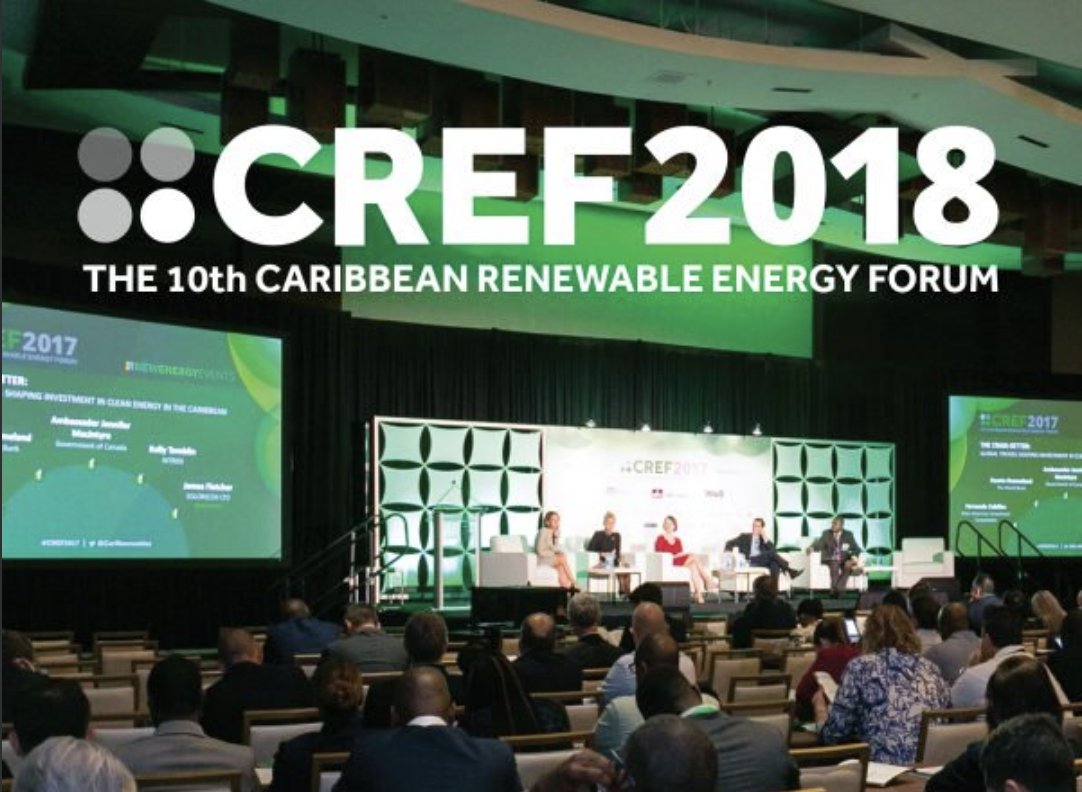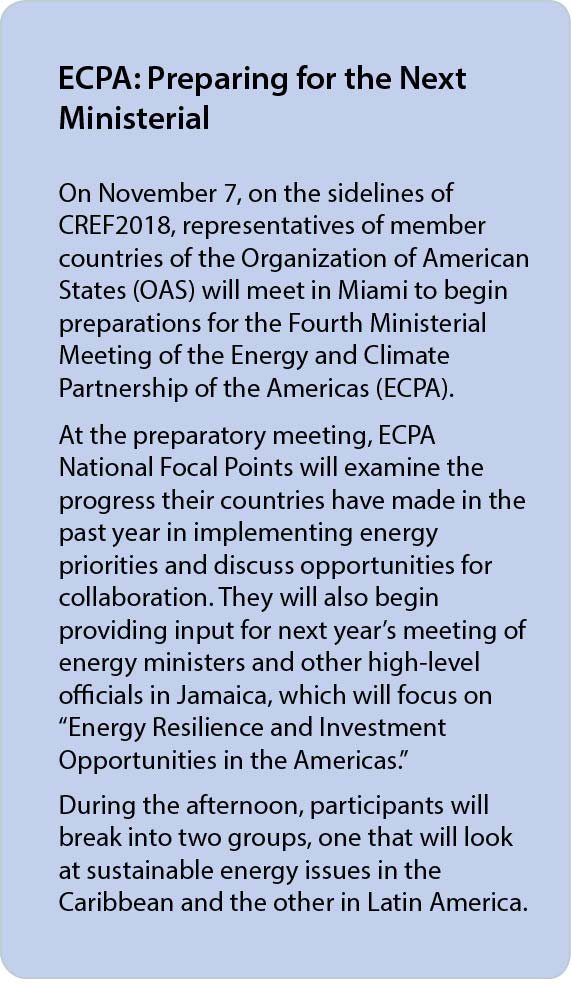
 In an era of fierce and frequent hurricanes, few would argue with the premise that the energy sector in the Caribbean must become more resilient—and fast. But what’s the most effective way to harden the electric grid, and where’s the money going to come from? How can island nations, territories, and communities accelerate planning and develop consensus about priorities? How can they incorporate renewable energy sources in a way that makes sense to both power utilities and their customers? These are just a few of the thorny questions participants will tackle at the 10th Caribbean Renewable Energy Forum (CREF), which takes place November 7-9 in Miami, Florida.
In an era of fierce and frequent hurricanes, few would argue with the premise that the energy sector in the Caribbean must become more resilient—and fast. But what’s the most effective way to harden the electric grid, and where’s the money going to come from? How can island nations, territories, and communities accelerate planning and develop consensus about priorities? How can they incorporate renewable energy sources in a way that makes sense to both power utilities and their customers? These are just a few of the thorny questions participants will tackle at the 10th Caribbean Renewable Energy Forum (CREF), which takes place November 7-9 in Miami, Florida.CREF2018 comes after a year in which the region has given a lot of thought to such issues. Last year’s edition of CREF was held shortly after Hurricanes Irma and Maria had walloped the region with Category 5 force, and participants were still somewhat in shock, according to Matthew Perks, CEO of New Energy Events, the company that puts on the annual conference.
 “I think there was still a battlefield triage process going on,” he said, adding that “most people in the room were concerned with just getting the lights back on.” Now, a year later, the conversation has evolved and expanded to include more players, Perks said. Now it’s not just electric utilities thinking about how to make the power system more resilient, but also customers, governments, and multilateral agencies too.
“I think there was still a battlefield triage process going on,” he said, adding that “most people in the room were concerned with just getting the lights back on.” Now, a year later, the conversation has evolved and expanded to include more players, Perks said. Now it’s not just electric utilities thinking about how to make the power system more resilient, but also customers, governments, and multilateral agencies too.
“There’s a more across-the-board understanding that resiliency, almost more than anything else, needs to be baked into planning,” Perks said.
That takes time. A few weeks ago, in early October, New Energy Events hosted a webinar that posed the question, “One year on, is the Caribbean energy sector more resilient?” In a quick, informal poll among the approximately 100 participants, only about 20 percent answered yes, 35 percent said no, and the rest were not sure.
Those results may seem discouraging, “but if you take a step back and you think about what we really mean by hardening grids and making systems more resilient, it’s not something that can take place overnight,” Perks said. Not only is it necessary to develop consensus among different parties about what to do, but there’s also the matter of securing the funding to carry out capital-intensive projects.
“It’s all very well to say, in the ideal world, of course we bury the power lines under the ground across the region” to protect against hurricanes, Perks said. “But that costs money. And so who is going to pay?”
That will be just one of the questions on the table at CREF2018, which will bring together several hundred participants, including energy service providers, investors, government officials, and representatives of utilities, nongovernmental organizations, development banks, and the academic community. The CEO of the Puerto Rico Electric Power Authority (PREPA), José Ortiz, is scheduled to give the keynote address. (See the complete agenda here.)
Since the annual event began—the first CREF was held in Montego Bay, Jamaica, in 2009—the conversation around energy in the region has changed substantially, according to Perks. “Ten years ago, renewables were absolutely on the margins,” he said. Today, “they’re part of the vernacular.”
While many electric utilities in the region have already embraced renewables, Perks said, some are still trying to figure out how to make them work within their business model. But, he said, there’s a broad understanding that solar and storage, in particular, and wind energy are here to stay. “The question now is how do we make a grid that is economically viable and resilient?”
This is a discussion going on in every market in the Caribbean, according to Perks. “It feels to me as if last year’s storms were a tipping point,” he said.
While that realization has led to a “mobilization of concern” about the need for the Caribbean region to become more resilient, “what we’ve yet to see is really a mobilization of resources to address the problem,” Perks said. Electricity rates are already disproportionately high in the Caribbean, he noted, so the challenge is to “corral capital”—including grants or concessional financing—so that ratepayers do not take on an even bigger burden.
These issues are complex and take time, Perks said, yet with hurricanes in the region becoming stronger and more frequent, the challenges of finding solutions are increasingly urgent. “How do we shorten the time frame? What can we do to attract capital? What can we do to accelerate the planning process?”
 View Map
View Map